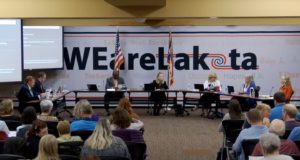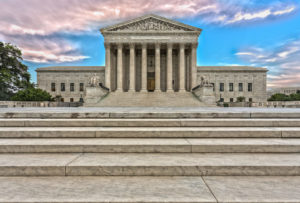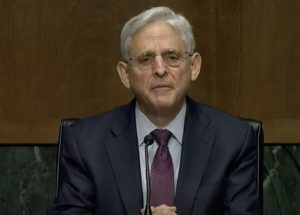SCOTUS to decide if public officials such as school board members can block critics on social media
(The Sentinel) – Free speech rights in the era of social media are on the docket in the U.S. Supreme Court as justices consider whether public officials can restrict access to their social media…

(The Sentinel) – Free speech rights in the era of social media are on the docket in the U.S. Supreme Court as justices consider whether public officials can restrict access to their social media accounts, such as Facebook and Twitter, from public criticism.
The Court accepted the case, O’Connor-Ratcliff v Garnier in which two members of the Poway Unified School District near San Diego blocked the parents of an elementary school student from the members’ social media over a series of critical comments. Michelle O’Connor-Ratcliff and T. J. Zane created Facebook and Twitter pages for their victorious school board campaigns, then converted the pages to report on school board business. Parents Christopher and Kimberly Garnier sued the officials on First Amendment grounds after they were blocked from posting criticism on the sites.
School board meetings around the country have gained national attention during and after the pandemic as frustrated parents, patrons, and board members clash over a variety of public school issues.
In Kansas, board members have little recourse against comments, in-person and on social media, even those they consider to be slanderous at times. A board president reportedly told a conservative member since they were elected officials “they just have to take it”. Most districts adopt local policies on public comment periods from a recommendation by the Kansas Association of School Boards, which basically suggests:
“Your comments should be directed towards board policies or the procedures our administrators establish to carry out those policies. This is not an appropriate time or place for patrons to make comments of a personal nature about any district employee or student…the board president has the option to stop the proceedings and poll the board to determine if a speaker may continue”
We reached out to the KASB for further comment and were told by its Legal Department it could not comment on legal advice given to districts.
The High Court has been reluctant in its history to reign in the opportunities of the public to seek redress from its government officials. In the landmark case of New York Times Co v Sullivan, Justice Arthur Goldberg wrote in his concurring opinion:
“In my view, the First and Fourteenth Amendments to the Constitution afford to the citizen and to the press an absolute, unconditional privilege to criticize official conduct despite the harm which may flow from excesses and abuses.”
Kansas State Board of Education member Dennis Hershberger recalled decisions from 1940s-era Justice William Francis Murphy upholding Freedom of Speech even to the point of “entitling citizens the right of offensive language toward elected officials based on the First Amendment.”
The Court is expected to announce its decision by the end of its term in late June.



